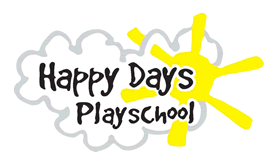Frequently Asked Questions
Why choose a play-based preschool?
The school is not ‘parent participation’. Can I still observe the class?
Does my child have to be fully potty trained?
What if my child needs help in the washroom?
What is the maximum class size?
How are guidance and discipline approached?
What about safety? And first aid?
Why choose a play-based preschool?
Play nourishes every aspect of children’s development - it forms the foundation of intellectual, social, physical, and emotional skills necessary for success in school and in life.
Play fosters creativity and flexibility in thinking. There is no right or wrong way to do things; there are endless possibilities - a chair can be a car, a boat, a house or a bed.
In play, children learn by combining their ideas, impressions, and intuitions with experiences and opinions. When it is self-directed, it leads to feelings of competence and self-confidence.
The school is not ‘parent participation’. Can I still observe the class?
Yes, parents are welcome to observe, by making prior arrangements with the teacher. It should be noted, however, that the child of the visiting parent almost always interacts differently with a parent present. The child will inevitably react by looking to the parent for reassurance, making sure their parent is paying attention to them, etc.
What field trips are there?
Some examples are:
A fall trip to a local Pumpkin Patch
Story time at the local library
Annual sports day
Does my child have to be fully potty trained?
Students are expected to be toilet trained or in the process of learning to use the toilet. If a child is not completely toilet trained he/she must come to school in a diaper or pull-up for sanitary reasons. Should a change be required, the teacher will call the parent or care provider.
What if my child needs help in the washroom?
Many preschool aged children require assistance with toileting. Other children will want privacy. When the teacher or assistant aids a child in the washroom, they will leave the door ajar (this is a government licensing regulation). Children are reminded to wash their hands and to flush the toilet. Proper hand washing is emphasized.
What is the maximum class size?
Crickets - Maximum 18 students
Dragonflies - Maximum 20 students
Maximum class sizes are set by the executive committee in consultation with the teacher.
How are guidance and discipline approached?
The primary goal of our school is to provide a place in which children feel safe, secure and positive about themselves, it is crucial that any guidance and discipline methods used are respectful and preserve feelings of self worth.
In order to ensure the safety of the children a number of limits are observed, for example;
• children are reminded to use ‘walking feet’
• children are expected to put toys away, walking surfaces must be kept clear
• blocks are not built higher than chin level
• children are not allowed in the office or in the art storage area
• chairs are for sitting on
• children are encouraged to use words, not actions, to express themselves
Positive reinforcement is also essential, so good behavior and manners are always rewarded with praise and commendation.
Redirection and distraction are used when appropriate by offering the child a substitute toy or by engaging him/her in another activity. This strategy is used primarily with younger children, as it does not teach children how to cope or to solve problems.
Is the school clean?
A detailed, deep cleaning of the whole school, including all toys, is carried out every month.
The appropriate buckets and sponges for bathroom clean-up and for floor clean-up (everything is labeled) will be used. The kitchen sink is used only for food preparation and snack clean up. The sink in the art storage area is used for all art, bathroom, and floor clean up. Cleaning supplies are stored out of reach of the children.
Daily cleans are done after every class including all high touch areas, washrooms, and floors.
What happens in an emergency?
In the event of an emergency, a supply of water, food and warm clothes are on hand to care for children until they can be picked up. Procedures are in place to ensure that your child is only released to his/her parent, care provider or a designated alternate.
What about safety? And first aid?
Monthly fire drills and an annual earthquake drill are practiced, as required by government licensing regulations.
Both the teacher and teacher’s assistant have current first aid training and the school is equipped with the required first aid bag(s) and fire extinguisher(s).
Is fundraising mandatory?
We ask that all families try to support the organized fundraisers, however, since monthly tuition fees are set to meet operating costs, it is not mandatory. Generally there are 1-2 fundraising events held per year. The funds go toward providing new toys, field trips and improvements to the school's physical structure as well as emergency internal subsidy for families in need.
We are registered with Canada Helps to easily process cash donations. Families can donate online and receive an instant tax receipt.
Examples of fundraisers:
Scholastic Books (a percentage goes back into the school)
Purdy’s Chocolates
Epicure
